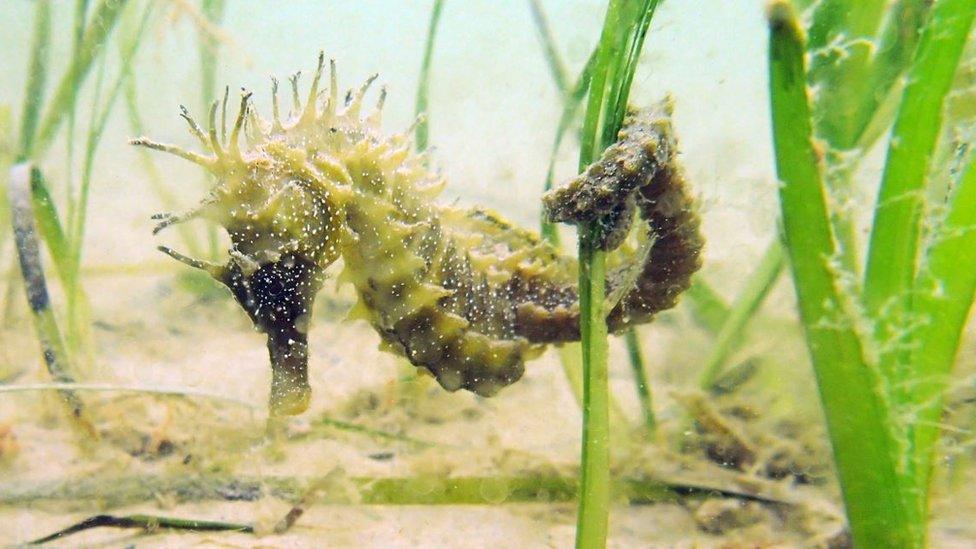Studland Bay 'eco-moorings' set up to protect seahorses
- Published
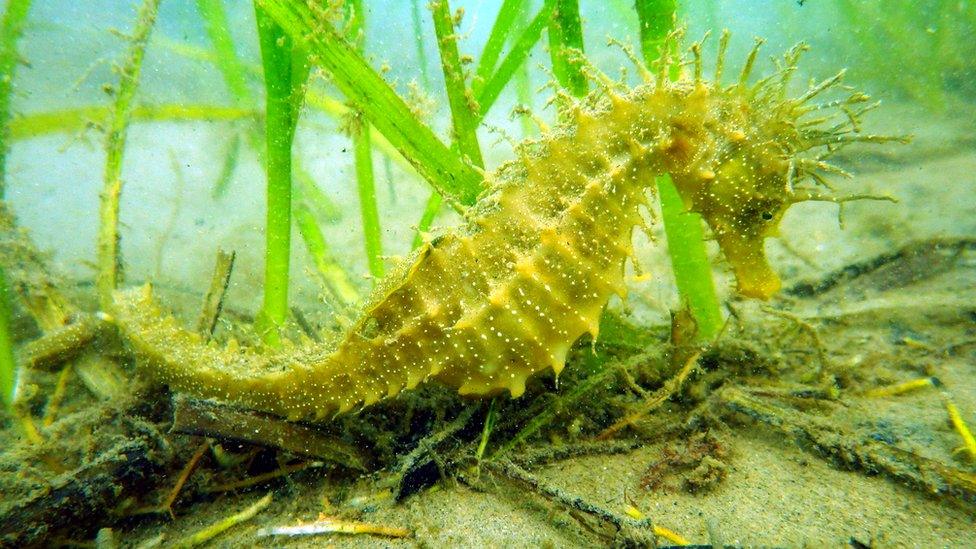
The dropping of anchors can damage the seagrass meadows which are an essential breeding ground for the Spiny Seahorse
"Eco-moorings" are being installed at a Dorset beauty spot to provide an alternative to anchors, which can damage seahorse habitats on the seabed.
The Seahorse Trust charity and national marina group boatfolk have put the 10 new moorings into Studland Bay.
Neil Garrick-Maidment, from the trust, said it was "vital" the area was "effectively protected" and used "responsibly and sustainably".
The scheme has received the backing of Chris Packham and Steve Backshall.
The site was made a Marine Conservation Zone (MCZ) in 2019.
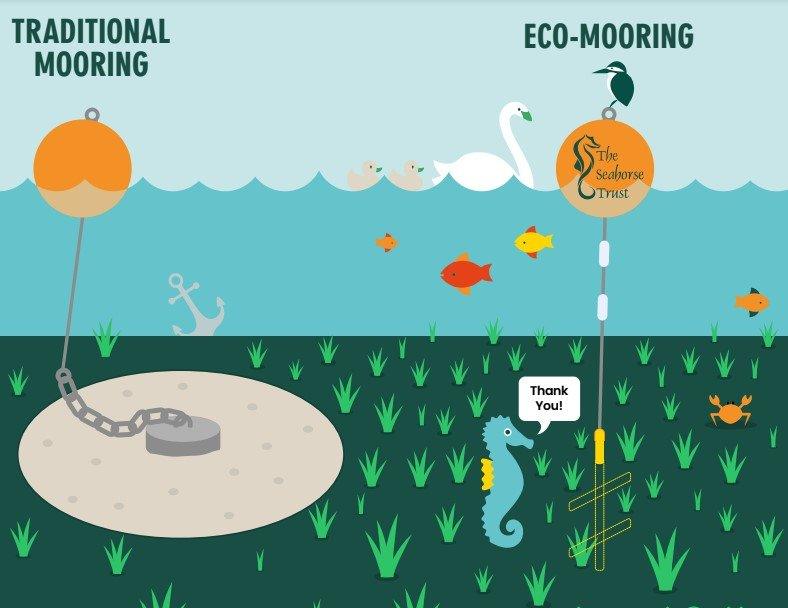
Eco-moorings use a helical screw anchor which is driven into the seabed and attached to the mooring buoy via an elastic band
The dropping of anchors can damage the seagrass meadows, an essential breeding ground for the Spiny Seahorse.
Eco-moorings instead use a helical screw anchor which is driven into the seabed and attached to the mooring buoy via an elastic band. Its flexibility means it does not scour the seagrass like an anchor does.
Michael Prideaux, managing director of boatfolk, said: "Providing an alternative option at Studland that protects this incredible marine environment is about doing the right thing for boaters and for our planet.
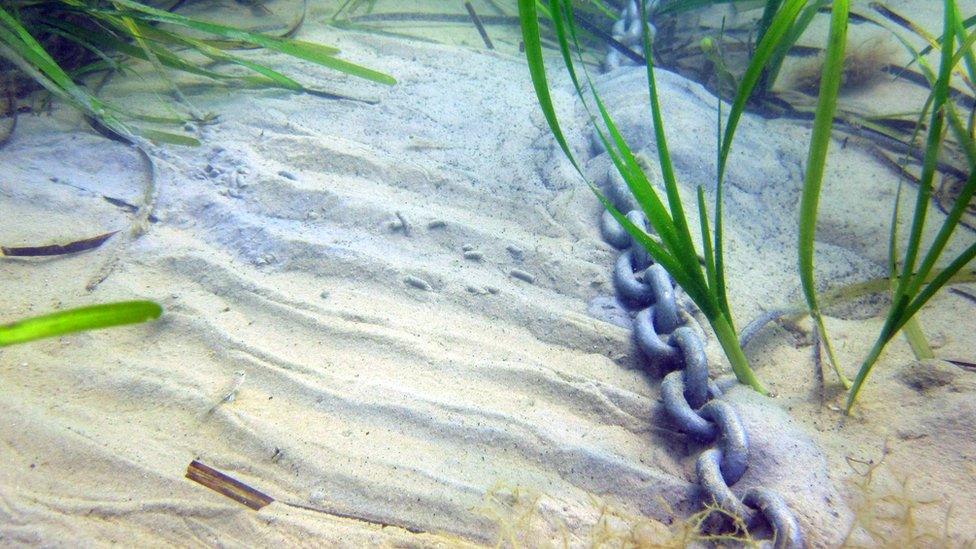
Seagrass meadows are scoured when traditional anchors are used
"Financial return is not an objective here; we are committed to making Studland Bay a sustainable boating destination for generations to come and are proud to be putting our name and resources behind the scheme."
Chris Packham called the project "significant progress".
"It is hoped that following the first 10, that more of these environmentally responsible moorings will eliminate anchor damage and preserve the seabed for these charismatic creatures," he wrote.
Fellow TV presenter and naturalist Steve Backshall said: "We need to take this simple step to save this sunken wonderland before it is too late."
Last year, the largest number of Spiny Seahorses were recorded in the area since 2008.
It was attributed to the reduction in people, boat traffic and anchors during lockdown.

Follow BBC South on Facebook, external, Twitter, external, or Instagram, external. Send your story ideas to south.newsonline@bbc.co.uk, external.
- Published21 July 2021
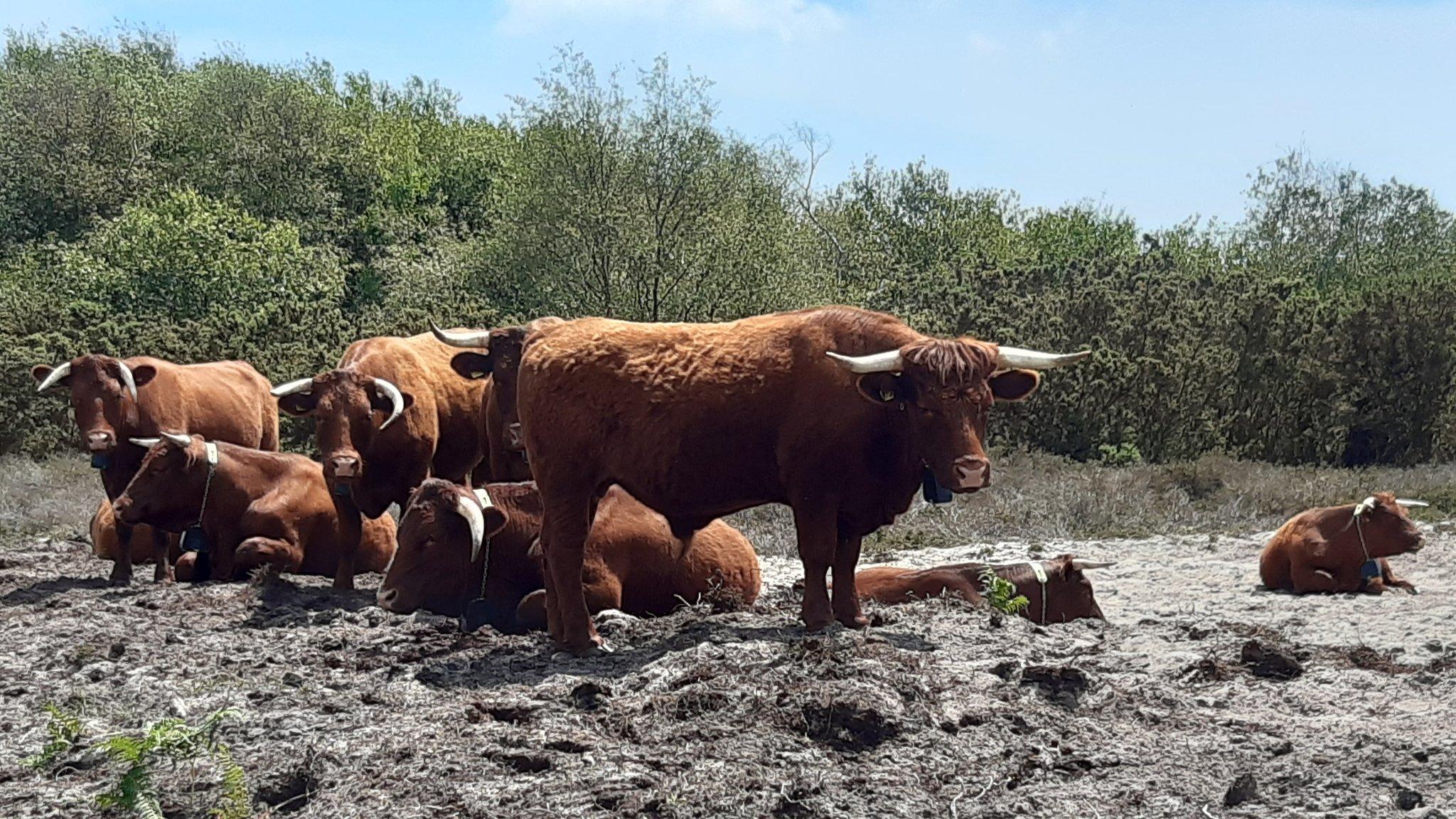
- Published2 June 2020
